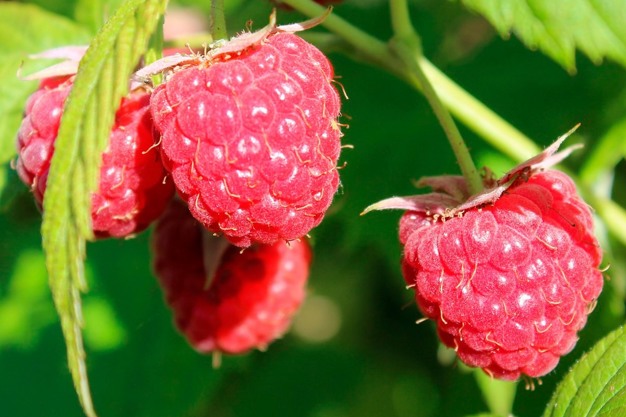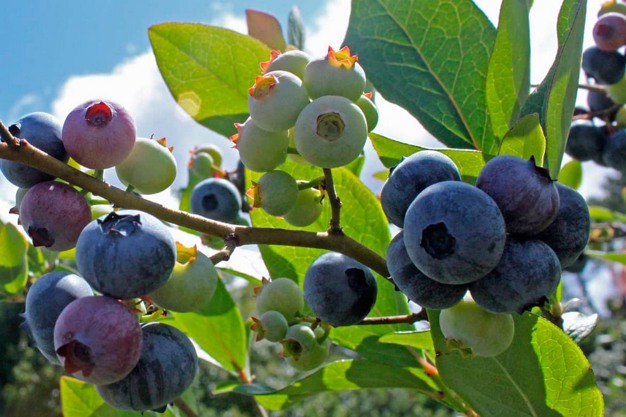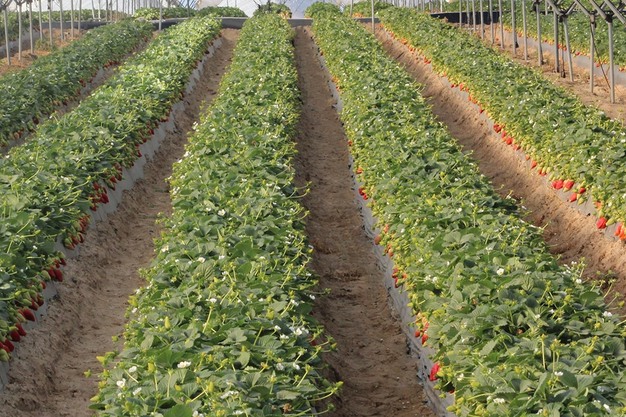The raspberry campaign is already underway for the second degree cooperative Onubafruit, from Huelva, one of the leading companies in the production and export of berries. It is also finishing the sowing of strawberry plants and it will soon start with its extra-early blueberry program.

"The raspberry season is already in full swing with our own variety program," says Francisco Sánchez, manager of Onubafruit. Raspberry cultivation has been severely hit in recent years and this has been reflected in an overall drop in the production area; a consequence of strong competition from third countries and high production costs. "Although raspberry prices are not bad, producing them from April to December requires a huge investment and entails multiple risks. Although many have given up on this crop because of how difficult it is to work with it, we are trying to ensure that our raspberry growers continue to invest in it," he says.
As for blueberries, costs are much lower in general and the production is expected to continue this year. "We will start with our exclusive varieties in late October or early November, on dates when blueberries have never been harvested in Huelva before. We have five varieties that are really competitive in organoleptic terms, with high productivity, lower harvesting costs and a more affordable right of use for our growers, who will be able to make bigger profits," says Sánchez. "Blueberries should continue to grow worldwide in terms of both production and consumption, given their excellent antioxidant and nutritional properties," he says.

"When it comes to water availability, the outlook for this season's berry campaign is somewhat better than the last, as we have 10% more water before the start of the rainy season. It is in these times of relative calm that the sector should be taking measures to continue producing in a more efficient and sustainable way," says Francisco Sánchez.
When he talks about sustainability, the manager of Onubafruit argues that you ideally want to have growers in small cooperatives, especially now, when the large venture capital fund model is being imposed.
"It seems as if, for many large retail chains, producers being part of cooperatives is a problem, while they boast about their commitment to sustainability and small-scale agriculture," says Francisco Sánchez.
"We have managed to bring together more than a thousand growers, both small and large, unifying criteria to offer a homogenous production and a guaranteed supply thanks to the implementation of thorough controls and protocols in all production stages. Moreover, research and development in innovation and in the application of technology are making it possible to remain competitive," says the manager of Onubafruit.

"People having access to food now and in the future depends on this hard work and that is why it is essential to support the cooperatives and their small producers. In the meantime, big private equity funds are buying up large amounts of land. Today they are involved in this sector, but tomorrow they could be speculating in another business and abandon agriculture altogether. This is a reality and it needs to be made clear," he says.
"Many Spanish producers are currently overwhelmed by high production costs, a lack of profitability and attacks from some members of the general press, causing them to abandon their lands, which are ending up in the hands of ever larger farms with fewer and fewer people. There is nothing more sustainable for the future than small producers. The cooperative model must be defended as a sustainable option over time. Those who don't count on small growers now won't be able to fill their shelves in the future," says Francisco Sánchez.
For more information:
Onubafruit
Tel.: +34 959 54 08 44
[email protected]
www.onubafruit.com
